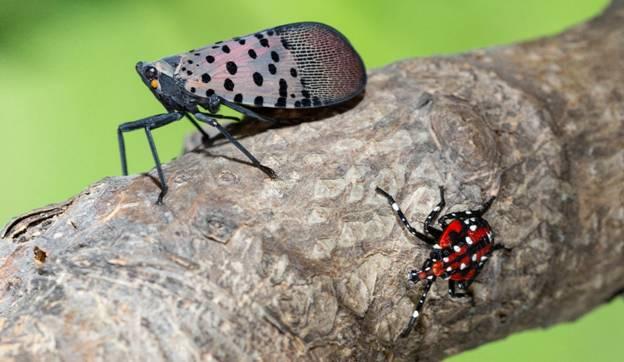Invasive species are posing a threat to the ecosystems they invade, and typically a biologist’s solution to the damage caused by invasive species is to eliminate them from the environment they harm.
However, some controversy on killing invasive species has arisen, as some biologists believe it is unethical to kill invasive species.
According to Laura Meyerson, a University of Rhode Island professor in the department of natural resources and an invasion biologist, an invasive species is a group of organisms that have been moved by people out of their natural range and into a new range where they have not previously existed. Invasive species include plants, animals, marine organisms, pathogens, fungi, bacteria, viruses and more.
Non-native species are a group of organisms that are introduced to a new environment that is different from where they naturally reside. Invasive species are a subsection of non-native species. Meyerson said that not all non-native species are harmful to their environment, but all invasive species are by nature, harmful.
“It becomes established, spreads and then has impacts on nature, people and ecosystem services,” Meyerson said.
According to an article from Messenger Tech, over $34 billion is spent on interventions to eliminate invasive species from the environments they impact. “They [biologists] question the scientific merits of ‘nativeness,’ and argue that many introduced species have positive benefits that are often overlooked,” Messenger Tech said. “Some say that the whole enterprise is unethical, as it grants the imprimatur of science to the mass killing of creatures whose only fault is living in the increasingly interconnected world we’ve built.” The elimination of invasive species is often referred to as the “war on invasive species,” according to the same article. “I think that kind of language is inflammatory and not really necessary,” Meyerson said.
While it is not always an easy choice for biologists to make, protecting natural biodiversity in ecosystems is important for all organisms in an ecosystem to thrive.
“I don’t know any invasion biologist that enjoys killing anything,” Meyerson said. “But if you think about it from the perspective of native species dying and going extinct, then you’ve got to make this choice.”
Meyerson works to control invasive species population on the campus at URI.
A section of the North Woods located at the bottom of Flagg Road has been nicknamed “invasive alley” because of its population of autumn olive trees, which have crowded out many of the natural species in the woods, according to Meyerson.
“I’ve been going in for the last few years and cutting down those trees and painting the stumps to remove them, because I want to foster our native biodiversity,” Meyerson said. “If we don’t have our native tree species and our native shrubs, we’re not going to support our native animals.”
Ecosystems are all connected, and according to Meyerson, a lack of native plant species in an area can negatively affect the animals that live in that habitat.
“To our native animals, these are the species that they evolved with,” Meyerson said. “Those are the food sources that they need, and so it’s a cascading effect when you don’t do anything because ecosystems by their nature are integrated and work together.”
Heather Faubert is a research associate in the plant sciences department. She works in the plant protection clinic, which works with farmers, landscapers and other land and plant owners that have problems with insects or diseases on their plants.
“Right now I’m working with an invasive nematode, which could possibly kill all of our native beech trees,” Faubert said. “Our ash trees are also being killed by emerald ash borer.”
These invasive species are killing the natural biodiversity of areas in Rhode Island, according to Faubert.
“I’m afraid of our landscape and our forests just containing invasive plants,” Faubert said. “We need to have a healthy, balanced ecosystem.”
Faubert also proposed a solution to invasive species and believes that oftentimes the only way to preserve the environment is to kill the invasive species.
“For research, what we really want to look at is some long term solutions,” Faubert said. “Oftentimes, someone doing this research would go back to where the insect is from, and look for it’s natural enemies”
After a natural predator is identified, researchers will spend years doing host specificity, which makes sure that the new organism being introduced will only affect the species trying to be controlled. They will then introduce the organism into the environment to control the invasive species.
According to the Messenger Tech article, the minority of biologists who believe invasive species should be saved claim that they bring some positive effects to the environment.
Meyerson has been working on a report for the past four and a half years that identified the role invasive species play in organism extinction.
“We know that for 80% of all extinctions in the world, invasive species were a really important factor,” Meyerson said.
Any of the positive impacts that an invasive species may bring to an area, are outweighed by the harm they cause, according to Meyerson.
Meyerson encourages students to get involved in educating themselves of the species around them. She also recommends that students take a course in ecology conservation no matter what their major to learn more about the environment they live in and how they can help those environments.





